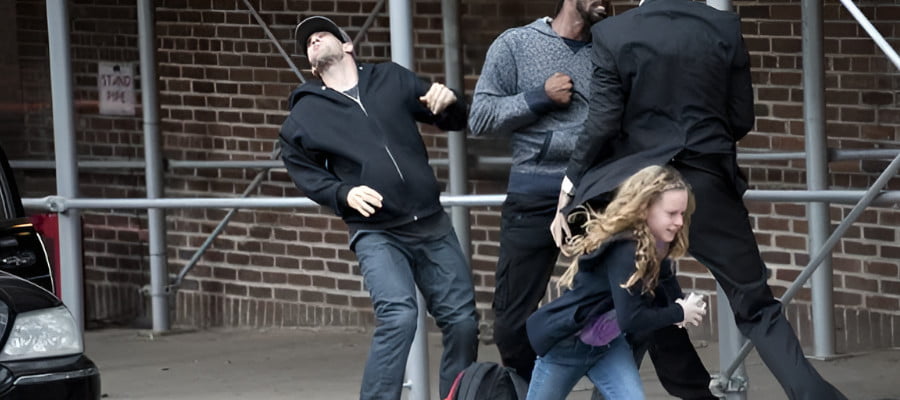Person of Interest is a show that started its existence talking about the hypothetical possibility of a mass surveillance state and the power that merely having your information in the control of a single consolidating source could represent. It started wanting to talk about the way that data aggregation, and even just the point of ‘here is where this data was collected’ was a powerful tool that could be used to extrapolate information you never meant to share. The world in which Person of Interest was conceived was one where the idea of imagine what a world with government surveillance would be like, and the terrors it could produce.
In 2013, Edward Snowden happened.
Spoilers ahead!
Season 3 can be seen as snapping together into two solid stories. Season 2 was about conflicting conspiracies, war between forces that want to maintain power in ghost governments, in the form of HR, the gangs, and the government secret operations department. This season is about closing some of those threats off, shutting them down, and showing the way that the Machine’s ability to confront threats like criminal organisations slowly concentrates the criminal attention away from irrelevant and immaterial threats.
At the midpoint of Season 3, we have two major changes to the status quo; first, the death of Taraji Henderson’s Carter, and second, the end of the HR Storyline. Carter’s death is a big deal, it’s very affecting and it shows how the rest of the narrative of the season has been changed. This is a story that started out about the fantasy of ‘what if someone was looking out for everyone (and could deploy a CIA kill team to save them),’ and has by this season gone into crime conspiracy and surrogate governments and finally broken as the next layer of power above gangs and cops gets involved.
Corporations.
This season introduces you to Vigilance, a fake group of real idealists that want to stop the government surveillance. Their position is treated as a good one. Their methods, where they kidnap and shoot people involved in data entry positions at companies that sell private information, that’s framed as a bad one. Now normally I would take this as a counter-revolutionary stance but it’s revealed that Vigilance are being manipulated into doing things in a bad way, and that the people who complain about Vigilance killing people kill people. It’s a bit team sports, is what I mean.
What I especially like about the Vigilance plot this season, though, and its eventual failure is the way that Vigilance is shown to be the way it is because it didn’t actually come about from grassroots development, and was instead, something made by a corporation, then co-opted, and that their proper course of action should be to distrust when a corporation hands you your new secret identity.
This is where this spycraft and paranoia and conspiracy narrative all starts to coagulate in a way I find interesting in a way most conspiracy narratives don’t. The people involved in the conspiracy aren’t doing something small scale and specific and coincidentally queer-coded. It’s honestly pleasant that the conspiracy in this conspiracy TV show seems to manage to avoid looking too much like Protocols of Elders of Zion, which is a shockingly low bar!
This is a really sharp change, and if you tune into the series after this point, they’re very much two different series. What started out as crime-of-the-week solve-the-puzzle, cops-as-complication story component, has become full blown spy nonsense with a corrupt cop (in a good way) working against the actions of a malicious corporation with the guidance of a spacey girl acting in the name of a machine god, and it does this all with a fairly seamless flow. Throughout this you have this recurrent idea of different people from different genres of story getting involved who seem to be completely unequipped to contend with a story outside their own.
In the same way that Season 2 built ideas around alienation that capitalism brings (and I swear to god, I am not saying this is intentional it’s just something that the story uses without necessarily realising it), Season 3 shows all these problems of class. Gangs are fighting with one another because that’s what they’ve got, HR is corrupt to exploit their position of power and perceived lack of reward for it, and all of their concerns from the top to the bottom are irritations to the actions of Decima technologies. Our heroes get to transcend these layers of the system, where they see the gangsters, then the cops, then the government, then the government’s higher levels and then the corporations, all operating in these aerosolised ways apart from one another.
It’s also just unavoidably weird that this show was made to be about things that were at best ‘paranoia’ when the show started and provably, demonstrably true when the show was going. There’s a plot in season 3 about dealing with the government fallout of a leak, and that fallout is in fact, more narratively believable than what really happened. See, in the real world, Edward Snowden had to run to another country and that whole situation is super fucked up, and … that was kind of it.
Like, an enormous breach of public trust happened and nobody set anything on fire.
In Person of Interest, the eventual leak of the proof of not the Machine but the organisation designed to protect the existence of the Machine results in the sudden and immediate shutdown of that service with everyone involved gone to ground. People grow paranoid and there’s an actual resistance to continuing that kind of project. And this is also in a world where The Machine has been so good at preventing terrorism that people need to have their fear of terrorism reignited with an entirely manufacted terror act.
In the world of Person of Interest, the system the government made was good, but only coincidentally; it was kind, but not because it had to be; and it failed, because a corporation was more convenient.


